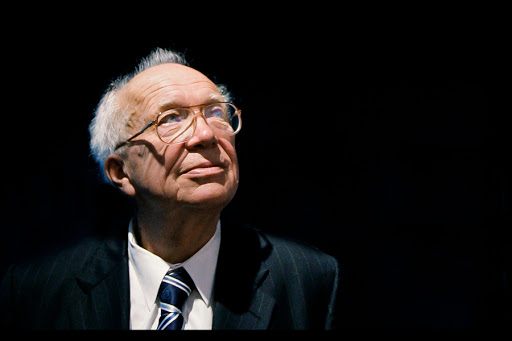Khruschev’s words are important for several reasons. He is perhaps the last surviving member of the participants in the 1962 Cuban Missile Crisis, so he has seen first-hand Russian and American leaders solve a deadly problem. As a young missile engineer and confidante of his father, he was in the Russian control center when President Kennedy and Nikita Khrushchev found a way to solve the Cuban Missile Crisis.
After the Soviet Union broke apart, he became an American citizen, and with a doctorate in history, taught as a distinguished professor at Brown University. He has written highly praised books, such as Nikita Khrushchev and the Creation of a Superpower. He is also the author of his father’s multi-volume memoirs. The primary sources of his father’s writings that led to the writing of this multi-volume history, Memoirs of Nikita Khrushchev, were smuggled out of Russia soon after Khrushchev left power.
In an interview Sunday, I asked Sergei Khrushchev, “Is there a way for the parties involved in Ukraine or in Crimea right now to develop some sort of compromise or way for the different sides to save face?” (Nikita Khrushchev withdrew the missiles from Cuba on the basis of a little known promise by President Kennedy to remove American missiles from Turkey.)
“No, certainly not,” said Khrushchev.
You have the Americans controlling Kiev and Russia controlling eastern Ukrainian rebels, but it is very limited control, for they are all Ukrainians, and they are fighting with each other. They will not do everything you want them to do, They do what they want to do.
I think Russia and the United States should work together try to calm down this country. Now we are working on opposite sides, and this is a very bad sign.”
This is a civil war, and civil wars have been present everywhere, Khruschev said. “Civil wars are very destructive. In Russia there was Civil War in 1918-1921. It was very destructive.”
After the crash of the Malaysian jetliner, there has been a brief lull in the conflict between more than a few military powers–perhaps a constructive sign and an indication that the 100-year anniversary of World War I is causing everyone to reflect and not act hastily. Khruschev believes that the downing of the Malaysian plane is not a game-changer in this conflict, however, because both sides are trying to use the issue to their own advantage.
“We don’t know if the rebels have any of these missiles. … So we cannot say who did this,” he asserted.
When asked about the personalities of the current and former U.S. president, Khrushchev said:
Khrushchev believes in the dynamic between European leaders, particularly those from Germany and Great Britain. He sees them as being more pragmatic about what is in their own countries’ best interests. They are trying not to be too pro-Russian or pro-American. They are pro-European, and they are trying to behave in the way that they think will be best for their own countries.
Khrushchev asserts that Russia’s interest in Crimea is not because of oil reserves that may be present, or for being a location for a naval military harbor. Rather, he sees Crimea as a place of Russian pride.
There is a 2500-year history involving Crimea and Ukraine. “You cannot keep it simple,” Khrushchev said. “It is very complicated, as complicated as any other place in the world. If you understand this—you will win and take over if you understand what happened years ago. I think Americans do not understand the situation in Europe, especially east Europe. They try to keep everything simple, but it is very complicated.”
Despite this complexity, for Sergei Khrushchev, the bottom line for what is happening in Crimea this this: “Crimea is Russian territory. The people voted to be part of Russia. It is the end of the story.”
As we talked, I discovered that each of our fathers had similar histories and interests. (I had been extremely fortunate to interview Dr. Sergei Khrushchev about his father for America magazine.) Both loved agriculture and the science behind it. Both of them wanted to become professional engineers, but were unable to because of circumstances. In Nikita Khrushchev’s case, it was poverty; in my father’s, it was having to live in an orphanage.
What makes all of this oddly endearing is that my father would sit in his chair and talk back to the television when Khruschev came on, making threats or saying things like “Your children will grow up under communism.”
It’s a shame they never got to meet each other. I think they could have become friends. But what a great blessing for me to talk with, and enjoy conversations with, Dr. Sergei Khrushchev, Nikita’s son.
William Van Ornum is professor of psychology at Marist College and director of research and development/grants at American Mental Health Foundation in New York City. He studied theology and scripture at DePaul University.

